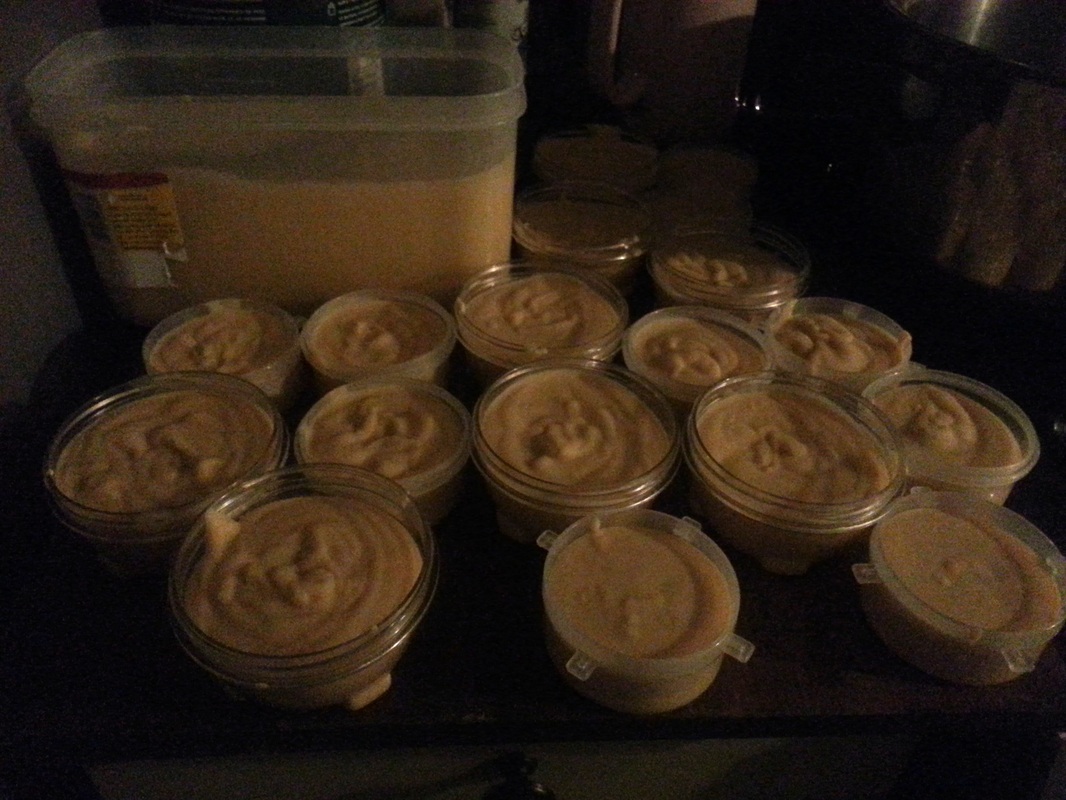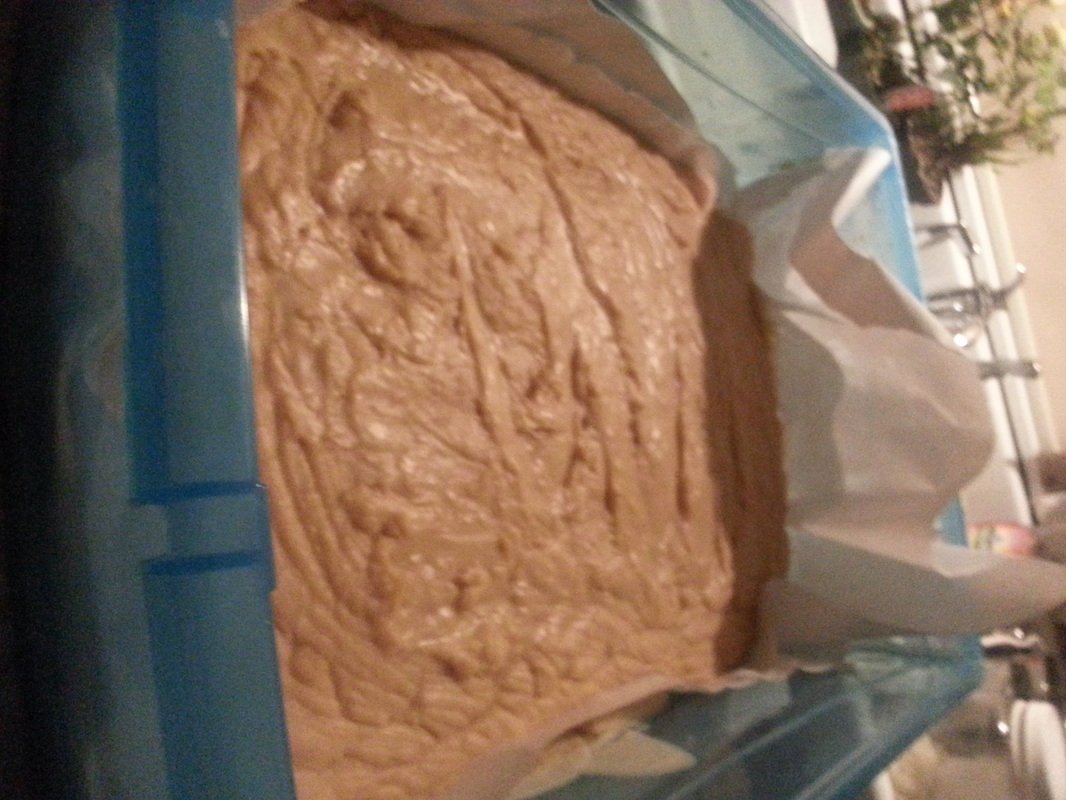The first recipe is cold process 100% tallow and cow's milk soap. The only other ingredient is lye. The second recipe of the day included a little lard I had left over from the last soap making, and palm oil (I am almost out and will not use that ingredient anymore. I believe there is no such thing as sustainable palm oil, except when it is wild harvested from the jungle in Africa. Then it has to be shipped a long distance to get here and that is not sustainable. So no palm oil. There is a little castor oil as well, because I would like the soap to be a shaving soap and castor oil creates great lather. The second recipe today is for milled soap, that is to grate and melt with lye sensitive ingredients to make exquisite soaps. After the soap has cured long enough, and is no longer lye active, then it can be melted with water or wonderful additions, such as carrot juice, which is fine for aging skin, or aloe vera juice for sensitive skin, herbs and spices, too. Clays, extracts and natural colourants can be added to milled soap once the soap has no active lye in it and then poured into fancy molds to make beautiful toilet soaps. Both soaps of the day will be very hard, so well suited to the shower. Soaps with soft oils, such as olive or hemp, make a soft bar which literally disintegrates in the shower after a short short while. Tallow bars are hard and adding palm oil also creates a hard bar. The tallow, lard, palm and castor bar was also made with cow's milk and lye.
It will be at least 6 weeks, preferrably 2 months before these cold process soaps are ready to use, however; the palm, castor, lard and tallow soap separated and went through the heated gel phase, so it will be ready sooner. The gelling of soap is created by the heat from the saponification process and gives a translucent bar. The other soap did not gel and will have a creamy solid look to it. I have never made 100 % tallow soap before, so it will be an interesting venture to see how it preforms. The longer the soap cures, the better quality the lather and cleansing properties are. The soap is going to be for sale in the farm store when the weather is warm enough, so likely May or June at the earliest, which will give it lots of time to cure.



 RSS Feed
RSS Feed